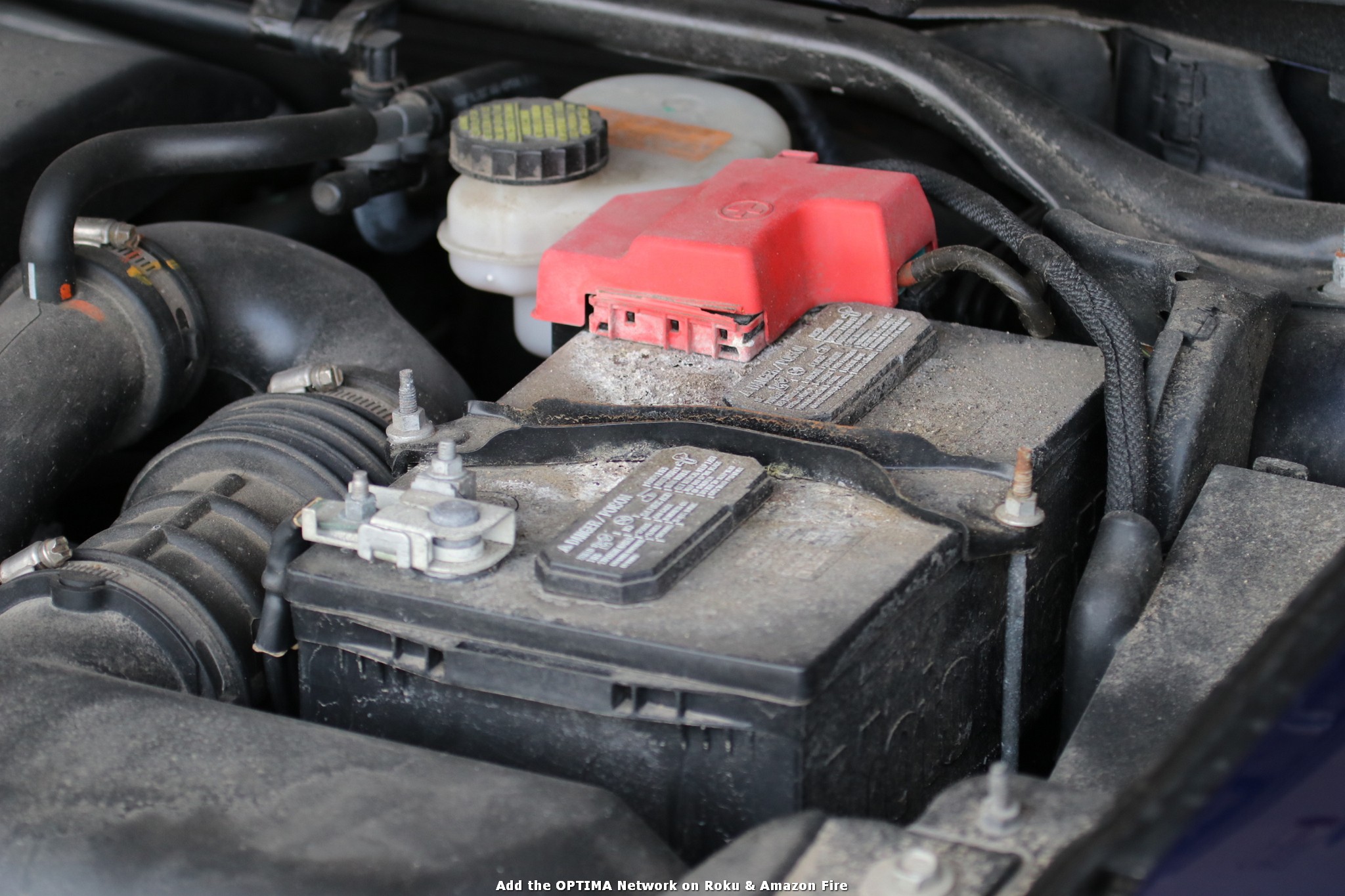Why Does My Car Battery Keep Dying?

Tips & Support
- Sponsor
- OPTIMA Batteries
- Location
- Milwaukee, WI


As is often the case, one of the conversations we had with a customer on Facebook has led to a new blog topic for us. This time, we're answering the question he had- Why does my car battery keep dying? It's a common question, although there can be multiple answers. In the case of this customer, we asked what type of application the battery was being used in and he responded by posting a photo of a meticulously-detailed engine compartment, with lots of customization.
Just from looking at the photo, we knew this wasn't a car that saw regular use (it was too clean) and if it was modified so much under the hood, that it was probably modified in a lot of other areas, including the suspension and the stereo system (both of which ended up being the case). He also had three more batteries in the back of his car to handle his stereo. He didn't tell us if he had an alarm system, but folks who spend that kind of money on their cars tend to spend a little extra for an alarm to protect them and might even have a dash cam.
We don't know how his car was wired either, but even if the auxiliary batteries in the trunk powered the stereo, there could've still been a lot of components powered by his starting battery, including his alarm and air suspension. Newer cars also tend to have a lot of parasitic draws or key-off loads, which can also slowly (or quickly) discharge car batteries, like satellite-based navigation systems, some of which stay active even with the car turned off. Ultimately, we determined that he only drove his car a few times per month and when he didn't drive it, he did nothing to keep his battery properly-maintained, which leads us to our first tip-
If you don't use your car/truck/boat regularly, make sure to keep the battery on a quality battery maintainer, like the OPTIMA Digital 400.
As we mentioned before, sometimes vehicles can have significant key-off loads that will discharge a battery over time. If you don't know what your key-off load is, you can measure it relatively-easily with a multimeter, as explained in this video. We typically suggest anything above 100 milliamps (.100 Amps) should be addressed, but it really comes down to how a vehicle is used and how the battery is maintained.
For example, a Group 35 REDTOP is a 44 Amp-hour battery. If you had a 50-milliamp draw, you would be discharging your battery at a rate of 1.2 Amps per day (.050 x 24 hours). That means your battery would be completely discharged in about 36 days (44 Amp-hours/1.2 Amps) if it was not being maintained at all. Those calculations assume the battery is fully-charged when the car is parked (most are not) and these time frames can be shorter in hotter climates and longer in temperate climates. Most vehicles also need batteries that are well above a 0% state of charge to start.
Even if a battery is only parked for a few weeks in that scenario, if the vehicle isn't driven long enough and under the right conditions (not short trips with the AC on and the stereo turned up), the alternator may not have enough time to replace the energy that was used during storage and starting. Eventually, that can lead to a discharged battery, even on a vehicle that sees regular use. That leads us to our second tip about why your battery is always dying-
You may not be driving your car often enough or under the right conditions to keep your battery properly-maintained.
Alternators are designed to maintain batteries near a full state of charge, not recover deeply-discharged batteries. The mistake a lot of folks make is that they jump-start a car with a deeply-discharged battery, but never fully-recharge their deeply-discharged battery, expecting it to charge while driving. If that's the case or someone just doesn't drive their vehicle often enough or under the right conditions to keep a battery properly-maintained, they may need to periodically top off their battery with a charger or maintainer, to help compensate for driving habits that may not allow their alternator to keep pace with their frequency of starting and stopping.
The final suggestion we'll offer might be rather obvious, but it could just be time to change your battery for a new one.
Car batteries are consumable items with finite lifespans. If your battery keeps dying, it may be time to replace it.
While we want you as a customer, we don't want your business before you really need our products. That's why we start by suggesting that your battery dying could be caused by infrequent use or infrequent maintenance. That typically covers a lot of the issues folks have and if they try to remedy those issues by simply replacing a battery with a new one, they may find themselves in the same situation again sooner than they'd like.
Before you decide to replace your battery, check the voltage level, which again, can be measured directly at the battery terminals with the engine off and should be at least about 12.6 volts. If the voltage level seems to be good, you can also measure it again with your engine running. This will tell you the output of your alternator and it should be about 13.7-14.7 volts. If it is significantly lower than that, then your alternator probably isn't maintaining your battery and may need to be looked at more closely to see if the alternator or the belts powering it need to be replaced.
If you've checked your voltage level and alternator output and everything seems in order, you may want to consider having your battery tested. Batteries should only be tested after an attempt has been made to fully-charge them. Many auto parts stores and battery professionals will offer this service for free, so all you need to do is bring your vehicle (or battery) to them for testing.
